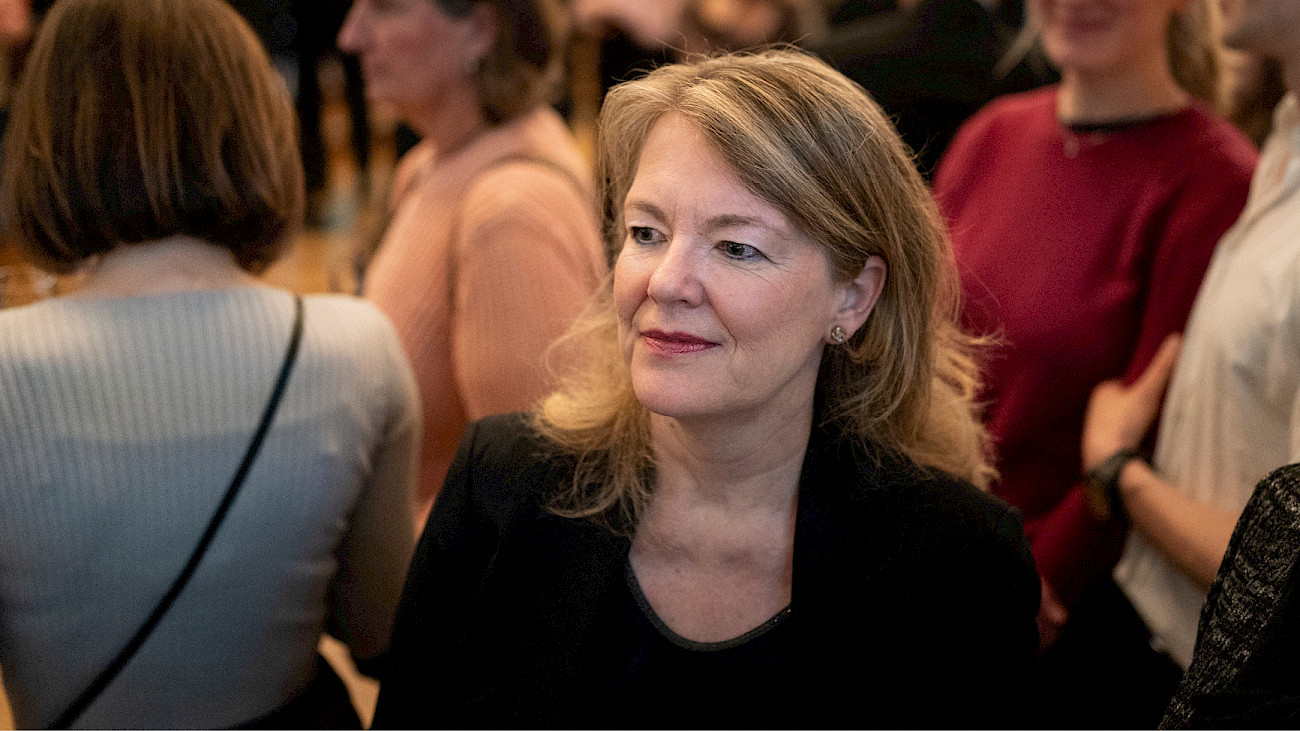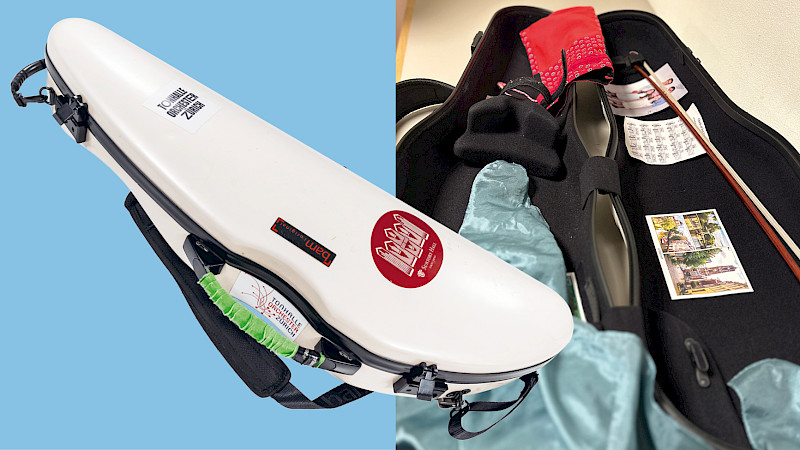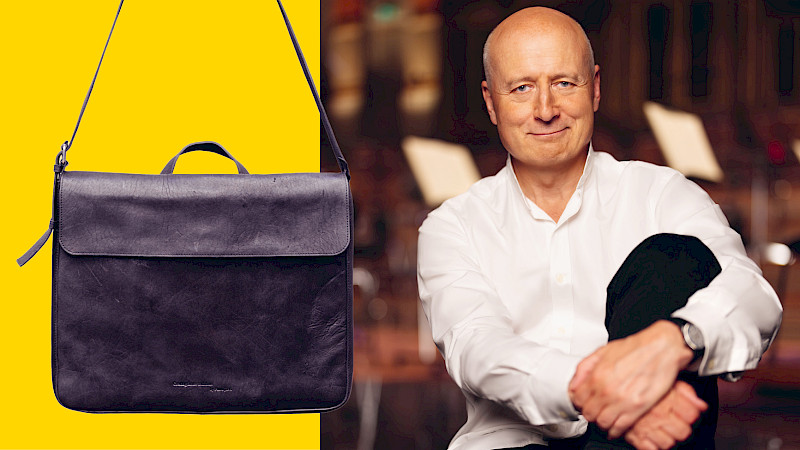
"And then sound emerges from the silence"
Listening is not always easy – this also applies to concerts. For Ilona Schmiel, Director of the Tonhalle-Gesellschaft Zürich, this is precisely why it is an existential experience.
Ilona, how do you listen to concerts?
I always try to go to a concert with open ears and an open heart. But I listen with very different levels of focus. It depends on what the day before was like or the temperature in the hall.
Temperature?
It's not about something you can measure in degrees Celsius, but about an energy level. It's about how the hall behaves. It has nothing to do with the applause, it's much more subtle. You can always feel very clearly whether an audience is ready to take something in, whether they are listening with inspiration. Incidentally, this also has a huge impact on the performance: a positive audience sends energy onto the stage. So that a different energy then comes back.
Has this temperature changed over time?
Keyword digitalisation. I don't think that attention in the concert hall has diminished in recent years – even if that is often claimed. In my view, the desire for attentive listening has actually increased. Those who come to a concert are first of all happy that they can devote themselves to listening. Listening to music is exactly the opposite of receiving a message every ten seconds and responding to it immediately.
What is so special about listening at a concert?
It's a time for self-reflection. It's rare to find yourself individually in a large crowd and still have a collective experience. The special thing is that the music is created anew every evening. There is this incredible moment of silence before it starts – a kind of sacred moment. And then sound emerges from this silence: that is still one of the greatest phenomena for me. I still get goosebumps now when I talk about it. Something develops and then it fades again.
Are there people for whom listening is a challenge?
Of course. People who move in completely different worlds during the day may find it difficult to let go in the evening at a concert. Some don't want to or can't open up, some may not even be here primarily for the music. I often hear people say that listening is exhausting. Yes, it is. It's satisfying, it makes you happy, but it also exhausts you. But we have a great hall here, which makes listening easier: In the Tonhalle Zurich, the sonic experience is combined with a physical experience – you can feel the vibrations of the basses.
Many children also come and go at the Tonhalle, and there are numerous events for school classes. Is it an educational mission to teach them how to listen?
No. Education belongs in schools, and it is important that music is not neglected there. Music is an education of the heart, it can be used to convey many things that characterise us positively in society; it can build bridges across many borders. And of course it is important that the visits to us are well prepared, that essential information is communicated in advance and also afterwards. That's also what our musicians do when they visit school classes. But we are not a school. When the children are here, they should simply be fascinated. They should experience people who are totally passionate about making music. That can also have a role model effect, at least it did for me.
Who was your role model?
My grandfather. He was a very good violinist but could no longer play because of a war injury. Perhaps he tried to compensate for this loss with me – in any case, he gave me listening moments by taking me to concerts and opera performances from the age of four. There was no particular intention behind it, no thought of what it might become later. But it was the decisive beginning. I didn't want to play the violin, but I wanted to make music, to be involved with music.
The classical music business is repeatedly accused of not having arrived in the present or even of isolating itself from current affairs in an almost Biedermeier-like attitude. Is the concert hall a place of retreat in a world that is difficult to bear?
For me, it has nothing at all to do with retreat. A concert is proactive, it always has an impact on the future. If you really listen, your state of mind changes. For me, inner films run parallel to the music: Images come up, I am transported to certain situations, perhaps reliving previous situations and feelings. Fear or sadness are suddenly very present: music can achieve this in a unique way. It's no coincidence that at crucial moments in life, even people who don't normally listen to classical music suddenly reach into "this drawer".
At what moments, for example?
At weddings, for example, or at funerals. With a Beethoven string quartet, you can retell an entire life. There are these frictions, the dancing, joyful moments, then a shadow again – it's incredible what that can trigger. It's an intense experience for many people, music says more than words. But only when it's played live: When it comes from a tape, as is often the case today, it's not comparable at all.
As an artistic director, you often sit in on concerts. Does it ever get too much?
No. I actually often hear the same programme two or even three times in a week – others say the same thing three times, for God's sake! But I think it's fantastic, I hear something new every time, I get deeper into the works every time. And there is also a "temperature" in the orchestra: you immediately notice how the musicians come on stage, what mood they are in as a collective. I am convinced that you can perceive this even without special listening training. That's another reason why it's interesting for me to listen to a programme several times. There may be a certain tension on the first evening, but later there is a sense of serenity, and finally a willingness to take risks in the sense of: Now we want to find out again.
What do you like to listen to apart from music?
Voices. Languages. That could be podcasts, I still listen to the radio a lot. And I love being in places where people with different languages meet, at airports for example. These different sounds and pitches – they fascinate me.
Do you listen to language like music? Or completely different?
With language, you immediately try to understand. My openness is much greater with music than with a text or political commentary. I am a different person and react completely differently when I listen to music. After an intense concert experience, this effect can last for a long time.
Translated with DeepL.com





